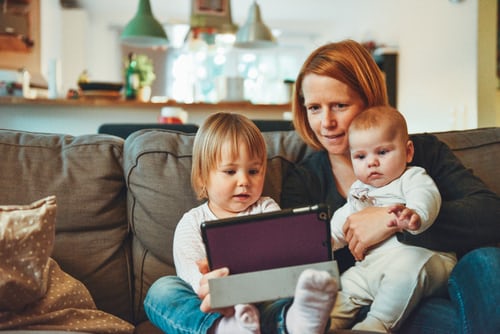Teletherapy has taken off amid COVID-19.
In early 2020, Alex Alvarado and his co-founders started a virtual therapy company called Daybreak to support teen mental health. The pandemic spread a short time later, and Alvarado realized that the need for these services has increased substantially. Now, teletherapy startups Daybreak and a similar company, Brightline, have turned their attention to providing mental health care for kids via teletherapy.
“The need has really obviously skyrocketed in this population, as well as the need for technology-based solutions,” Alvarado said. “So, it was fortunate for us to be able to help as many kids as we have been during this time.”
Daybreak is trying to reach the adults involved in their care. Alvarado said, “Where are teens? They’re in school for 60 to 70% of the day, even if it’s virtual school. What we’re trying to do is distill the offering as much as possible to the school, so that it’s impossible for them to say no.”

The company has partnered, so far, with 30 public and private schools and multiple school districts in California to host free virtual classes on mental health for parents, and Daybreak recently opened its classes to the public.
Its ten-week program focuses on youth and includes weekly video therapy sessions for common mental health issues like anxiety and depression, along with an ongoing text chat option with therapists, access to group sessions, and additional wellness tools. Parents are included in monthly check-ins.
Brightline’s services are currently available in California and Massachusetts for kids aged 3 to 17 and include behavioral therapy, speech therapy, and medication support. The company also offers skills-based coaching programs for parents and kids.
“When we started the company, nobody really thought that pediatric behavioral health would be scalable using virtual care models,” said Naomi Allen, Brightline’s co-founder and CEO. “It just wasn’t done, and I think we assumed that the model was brick-and-mortar care for the kids and then wrapping the experience for parents and caregivers with the technology.”
Adapting in-person techniques to work virtually has taken some out-of-the-box thinking on behalf of the teletherapy startups. Brightline’s Alex Boeving Allen, VP of clinical strategy, suggested the company begin using a whiteboard, saying, “What Alex knew was that one of the great ways that a top-notch clinician engages with the child is by having them draw pictures to tell a little bit about their family history.”
At Daybreak, some therapists are using digital sand trays in which “we present the teen, the child, the family with an actual tray of sand in the therapy room,” said the company’s clinical director, Allyson Holmes-Knight. “We give them figurines… and they can kind of build their world.”
Another potential issue is for teletherapy startups managing noisy and sometimes chaotic environments when households include multiple family members. But all the all, most services can be replicated and families love the convenience of teletherapy.
“The problem that we’re solving in the market… is creating scalable, high-caliber, evidence-based care across the country on an in-network rate structure,” said Allen. “So, it’s affordable for families and making that accessible using the virtual care model.”
Sources:
Virtual therapy startups tackle the gap in mental health care for kids and teens


Join the conversation!